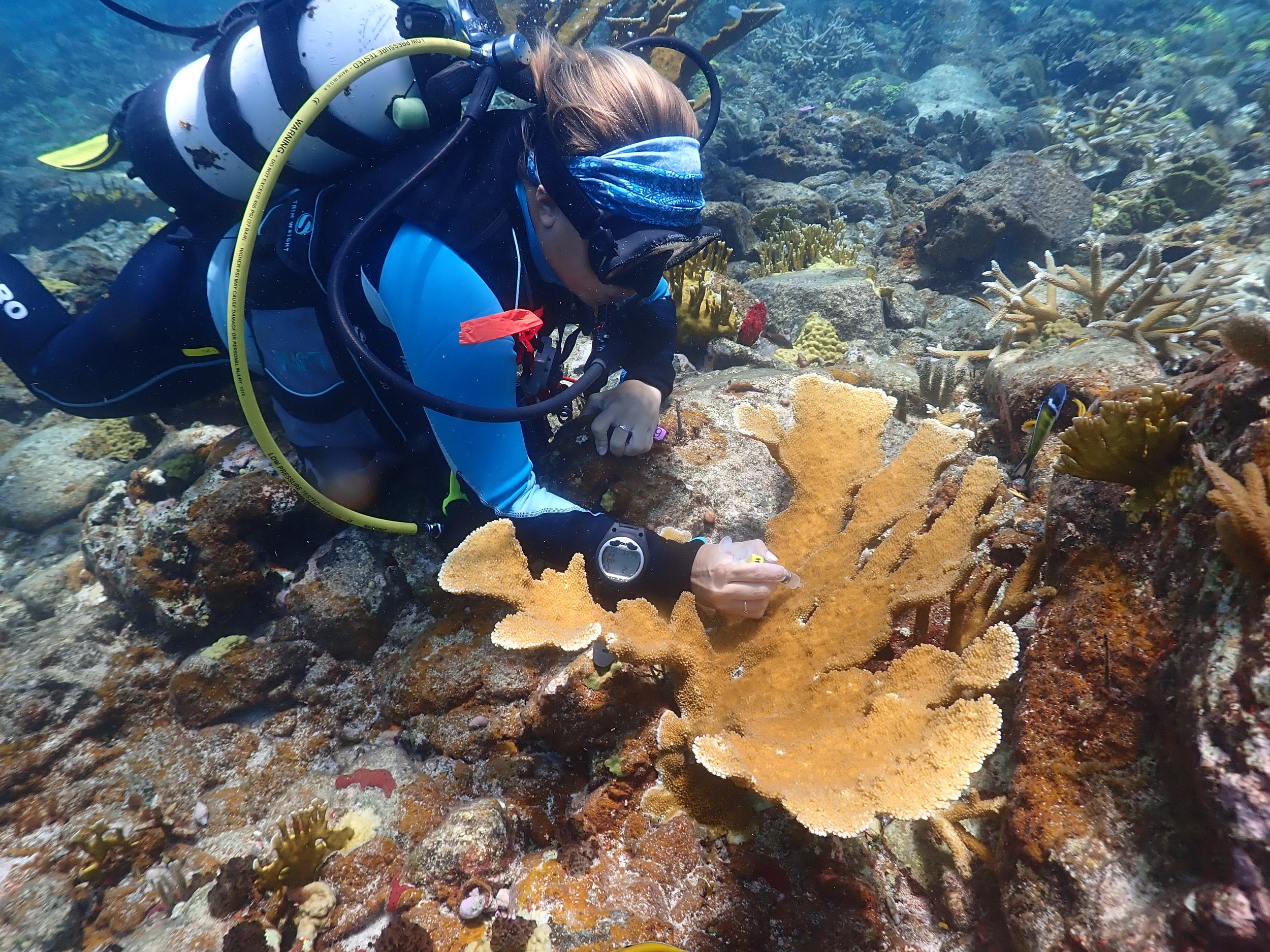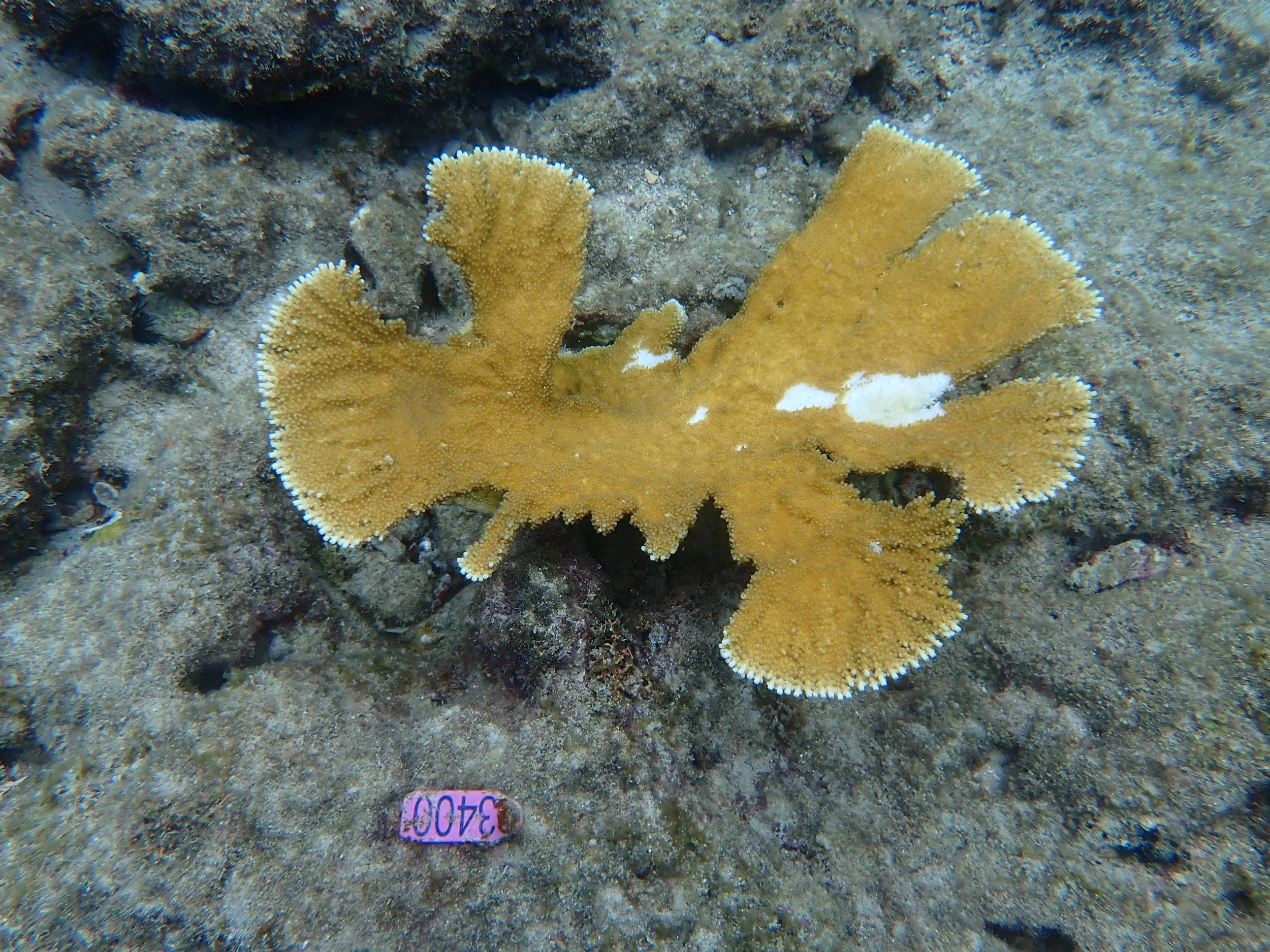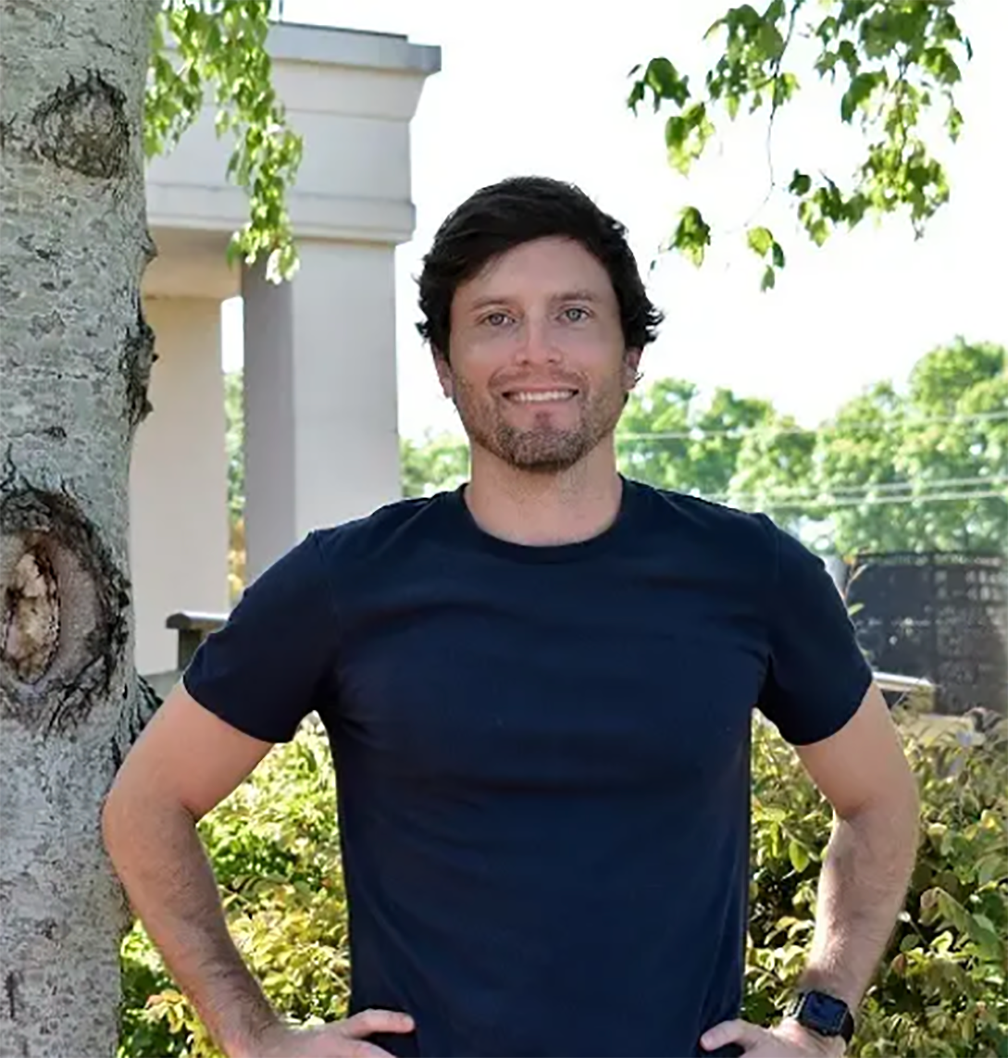Section Styles border
Coral Disease & Restoration
Coral disease has become a driving cause of coral death in the last few decades. The recent emergence of stony coral tissue loss disease (SCTLD) in the U.S. Virgin Islands was devastating for many reasons. SCTLD kills corals rapidly and can spread quickly from reef to reef. Even more important, this disease affects more than twenty different types of corals. Understanding how and why different species are susceptible to SCTLD can help us to predict the spread and impact of this deadly disease. We also seek to combat the loss of corals through active coral restoration. Our research focuses on how science can inform restoration to jump start the process of healing for these critical habitats.
CONTENT LINKS
Coral Disease / Featured Articles & Videos / Additional Reading / Dr. Marilyn Brandt / Project Team
Coral Disease
In The USVI
Climate change is the single biggest threat to coral reef persistence, but local factors can also affect how resilient coral reefs are to global changes. For instance, warming ocean temperatures increase disease virulence, but clean water can provide the healthiest conditions for corals and give them the best fighting chance against infection.
The coral disease and restoration lab provides a pathway from student to career scientist. Natasha Bestrom is one of the several examples of MMES graduate students who have gone on to be hired as full-time UVI staff, while several others have gone on to PhDs and research labs all over the world.
UVI’s partnership with the Lovango Beach Club & Resort merges active coral restoration and science communication/outreach, offering visitors and locals a chance to learn and participate in a coral restoration project while providing valuable data to the scientific community. Photo: Dan Mele
Coral Restoration And Climate Change
Our group has been sampling corals and performing disease transmission experiments to understand how susceptibility varies by species and how transmission dynamics are affected by different water quality parameters, including thermal stress. While most water quality monitoring programs sample only at the ocean’s surface, we have been working to quantify water quality dynamics at the level of the corals. We compare these results with coral population dynamics and patterns of microbes in order to determine how water quality influences the health of corals. Our group has found that different species have different tolerances to changes in the environment, and this can affect their disease resistance. Because different coral reefs are comprised of different abundances of species, we are now testing how disease spread across a region is affected by the species composition of the different reefs that make up that region.
Losses due to disease and other stressors have led many Caribbean islands to turn to coral restoration. These restoration activities have often focused on fast growing branching corals. But these corals were severely impacted by Hurricanes Irma and Maria, which affected the territory in 2017. Research is needed to diversify strategies for coral reef restoration.
A coral’s resistance to disease and a restored coral’s likelihood of survival can both be affected by the environment. Stressors originating from local human activities like pollution and temperature extremes due to climate change can weaken corals, making them less able to resist infection or less likely to grow and survive after being restored to a reef. Identifying what environmental factors are important in disease susceptibility and coral restoration success can help us to identify important areas for management and restoration.
Research Goals
The Marine Disease and Restoration research area of VI EPSCoR will test how different environmental and species-specific factors affect a coral’s susceptibility to disease and its likelihood of success after being restored. This research will help us to understand how different types of corals may be better targets for restoration and also how non-coral species like urchins which control seaweeds or sponges which filter water may prevent disease infection and/or positively benefit restored corals.
This research aligns with two important initiatives in the US Virgin Islands:
1) A multi-agency initiative to track and control Stony Coral Tissue Loss Disease (SCTLD) led by the Virgin Islands Coral Disease Advisory Committee (VI-CDAC), and
2) Reef Response, an initiative by the University of the Virgin Islands and VI EPSCoR to restore coral in the northern Virgin Islands using science-based strategies and involving citizen scientists.

“This research program will focus on the past and future of coral reefs of the US Virgin Islands. We aim to understand how and why reefs have been degraded by disease and other stressors in the past and then scientifically test strategies for how reefs may be restored to their former beauty and diversity.”
— Dr. Marilyn Brandt
Thompson Reuters Articles
Sylvia Earle Webinar
Corals In Crisis
Additional Reading & Publications

Section Styles background gallery-block-hover
Marilyn Brandt, Ph.D.
Project Lead
Marilyn Brandt is a Research Professor of Marine and Environmental Science at the University of the Virgin Islands (UVI). She fell in love with the Caribbean in college when she visited a childhood friend and pen pal in Trinidad. She went on to study Caribbean coral disease ecology while earning a bachelor’s degree in biology from New York University and then her Ph.D. in marine biology and fisheries from the University of Miami. She moved to St. Thomas to join the research faculty in the Center for Marine and Environmental Studies at UVI in 2010. Her research focuses on understanding how disease is damaging coral reefs and how coral conservation and restoration can reverse that damage. She is the Research Team Lead and an Executive Team member for the U.S. Virgin Islands Coral Disease Advisory Committee and she directs Reef Response, a coral restoration program at UVI which is focused on science-based coral restoration in the northern U.S. Virgin Islands.
Meet the team
Collaborators
Tyler Smith, Ph.d.
Coral Reef Ecologist, UVI
UVI MMES Students
Amy Apprill, Ph.d.
Coral Microbiologist, Woods Hole Oceanographic Institution
Daniel Holstein, Ph.d.
Coral Reef Connectivity Modeler,
Louisiana State University
Seascape Ecology Lab
Laura Mydlarz, Ph.d.
Coral Reef Molecular Ecologist,
University of Texas Arlington
The Mydlarz Lab
Adrienne Correa, Ph.d.
Coral Reef Microbiologist
Correa Lab
Amanda Badai
Avery Coble
Dr. Rebecca Gibbel
Davis Strobel
Kadejsha Tonge
































